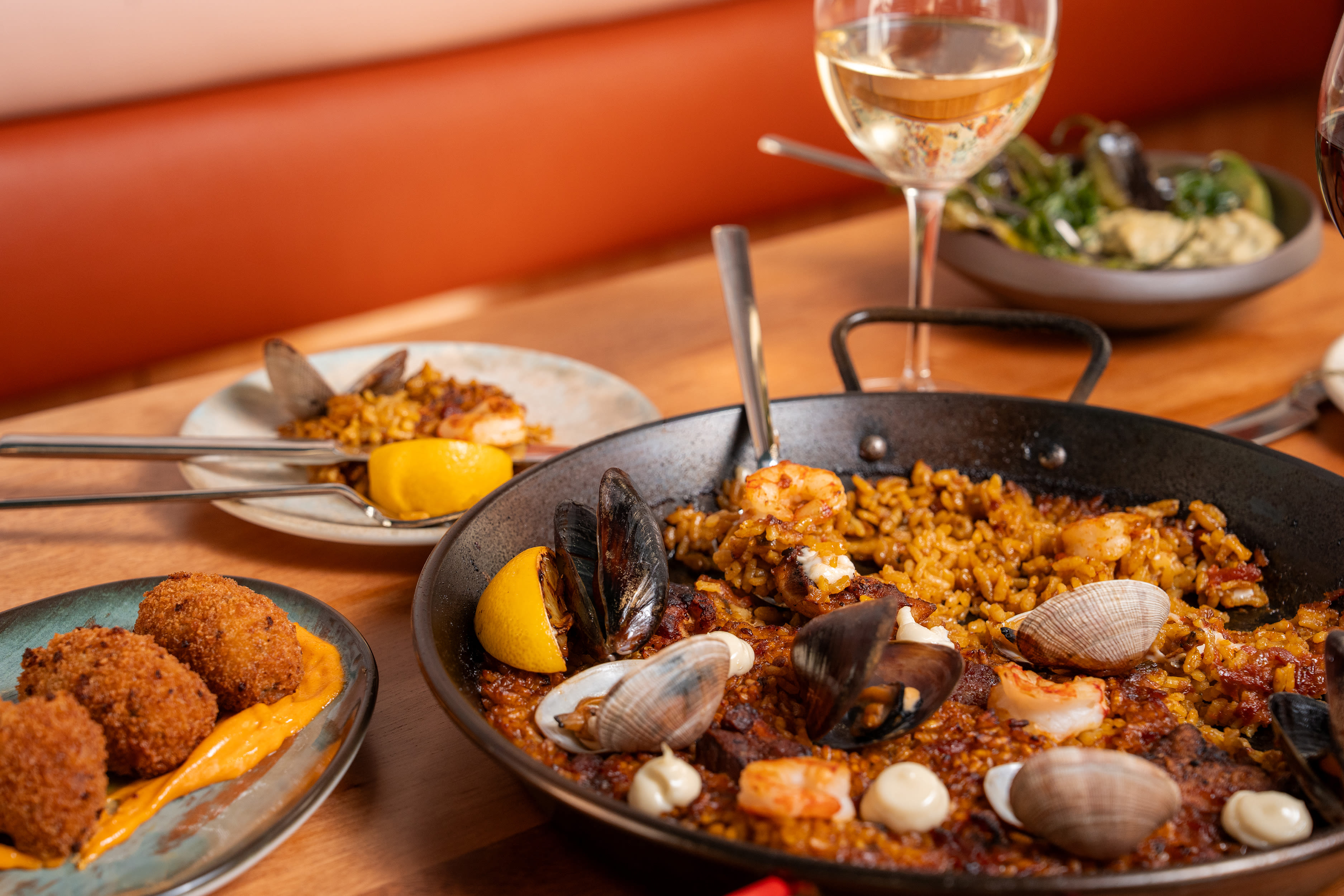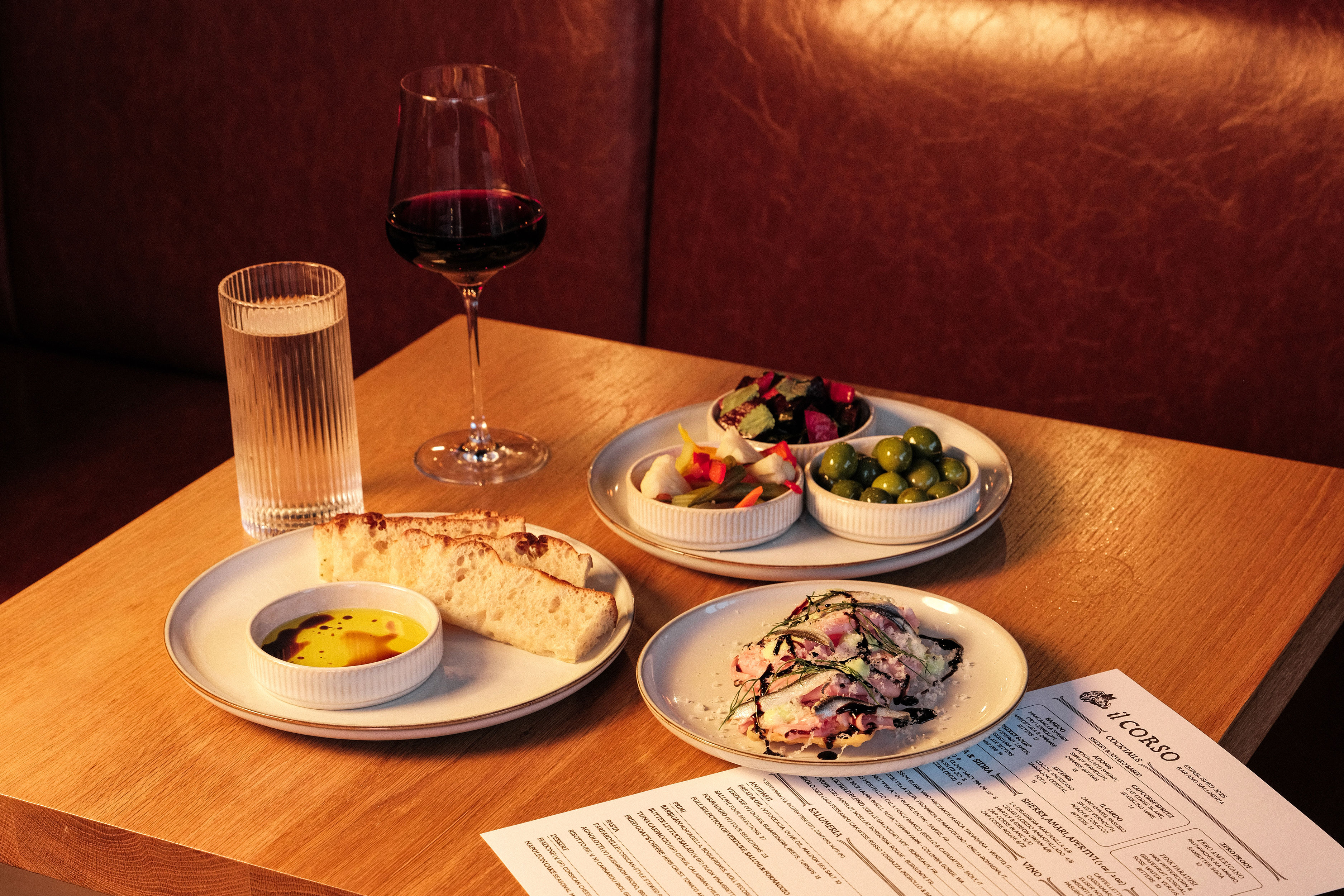Tikim, a New Filipino Supper Club, Launches Soon
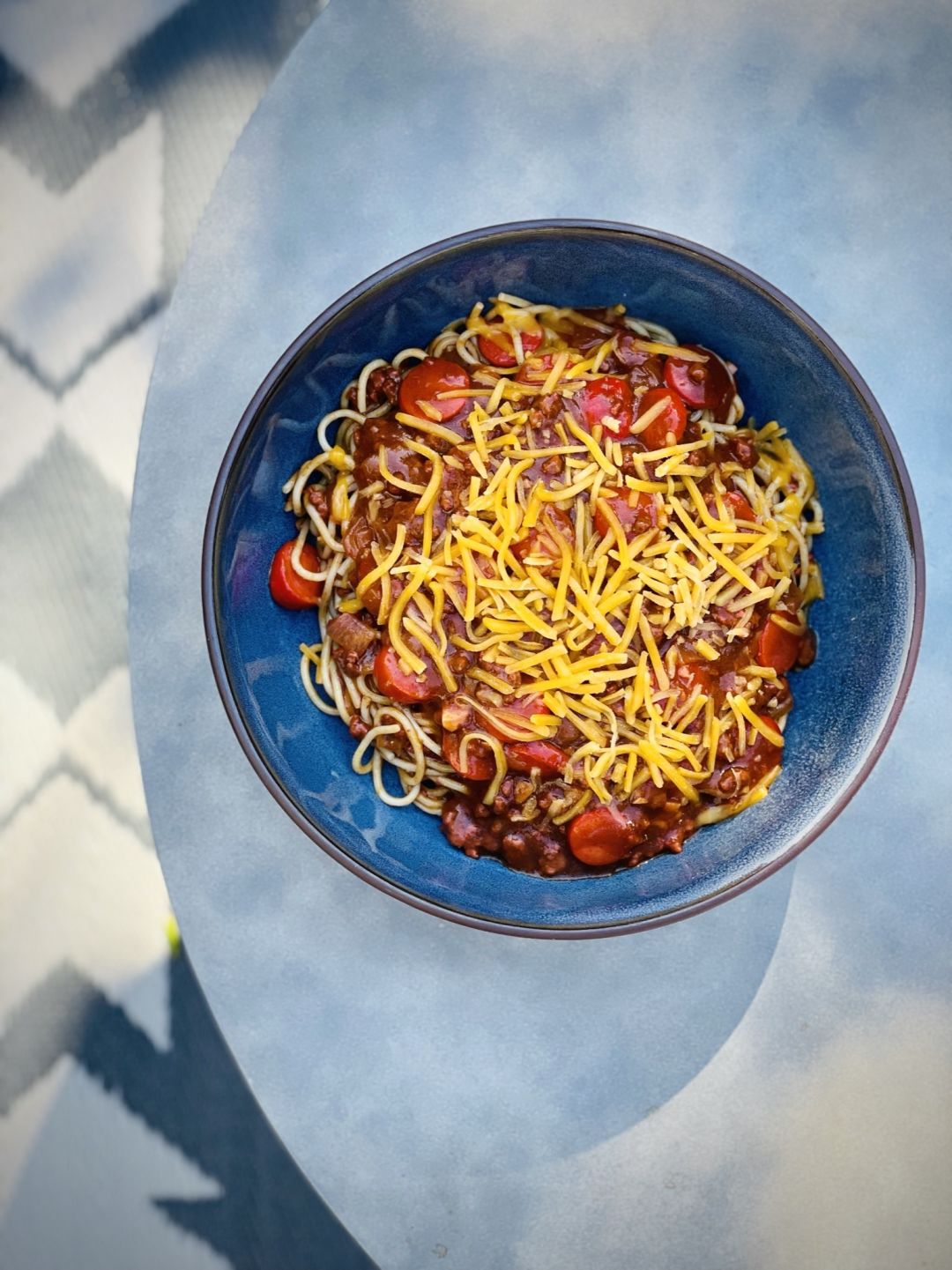
Tikim's Filipino spaghetti
Image: Courtesy Tikim
When you’re trying to decide where to eat with friends, what does the run-down of the options sound like? Something like pizza, Mexican, Indian, Chinese, Thai? Despite Portland's growing Filipino food scene, from Magna to the new Filipino-inspired pop-up Pulu by Sunrice, Filipino food never seems to make it onto most folks’ lists—and a new Filipino supper club, Tikim, wants to help change that.
“You will name every single Asian country, you will go down to Cambodia and Myanmar, and even if you get to Filipino food, it’s one of the last—or you didn’t even name it,” says popular Portland food Instagrammer Nori De Vega, one of the three founders of the supper club along with fellow Filipino food lovers Tricia San Mateo and Jane Barmore.
The five-course tasting menu will take diners through a full day of Filipino food in a single meal: breakfast, lunch, an afternoon snack called merienda, dinner, and dessert, plus a drink to start off the meal. The first dinner will take place at Mestizo, 2910 SE Division St, on October 17 at 5:30 p.m. Tickets are limited to 20 guests, cost $75 each, and go on sale on October 7 at 5 p.m. Look for the link to purchase tickets on De Vega's Instagram page.
But Tikim, which translates to “taste” in Tagalog, isn’t just about food—there’s also a storytelling component. De Vega plans to include Filipino spaghetti on the menu, a comforting, homey dish that her mom made for her growing up that her childhood friends would mockingly refer to as “white trash spaghetti.” When Anthony Bourdain tasted Jollibee’s version on an episode of Parts Unknown, he said, “That spaghetti’s deranged, yet strangely alluring.” But the sweet-salty spaghetti, made with banana ketchup and hot dog chunks, has a complex history.
“The US was able to fight side by side with Filipinos to help us gain independence, but we forget that the US also wanted to keep the Philippines as a US territory,” explains De Vega. “And with them they brought nonperishables like canned tomato sauce, hot dogs, spaghetti noodles, and we kind of just made it our own.” It’ll be served alongside pancit palabok—a dish made with shrimp stock and fried pork skins that doesn’t lean heavily on Western influence and stands in sharp contrast to the spaghetti.
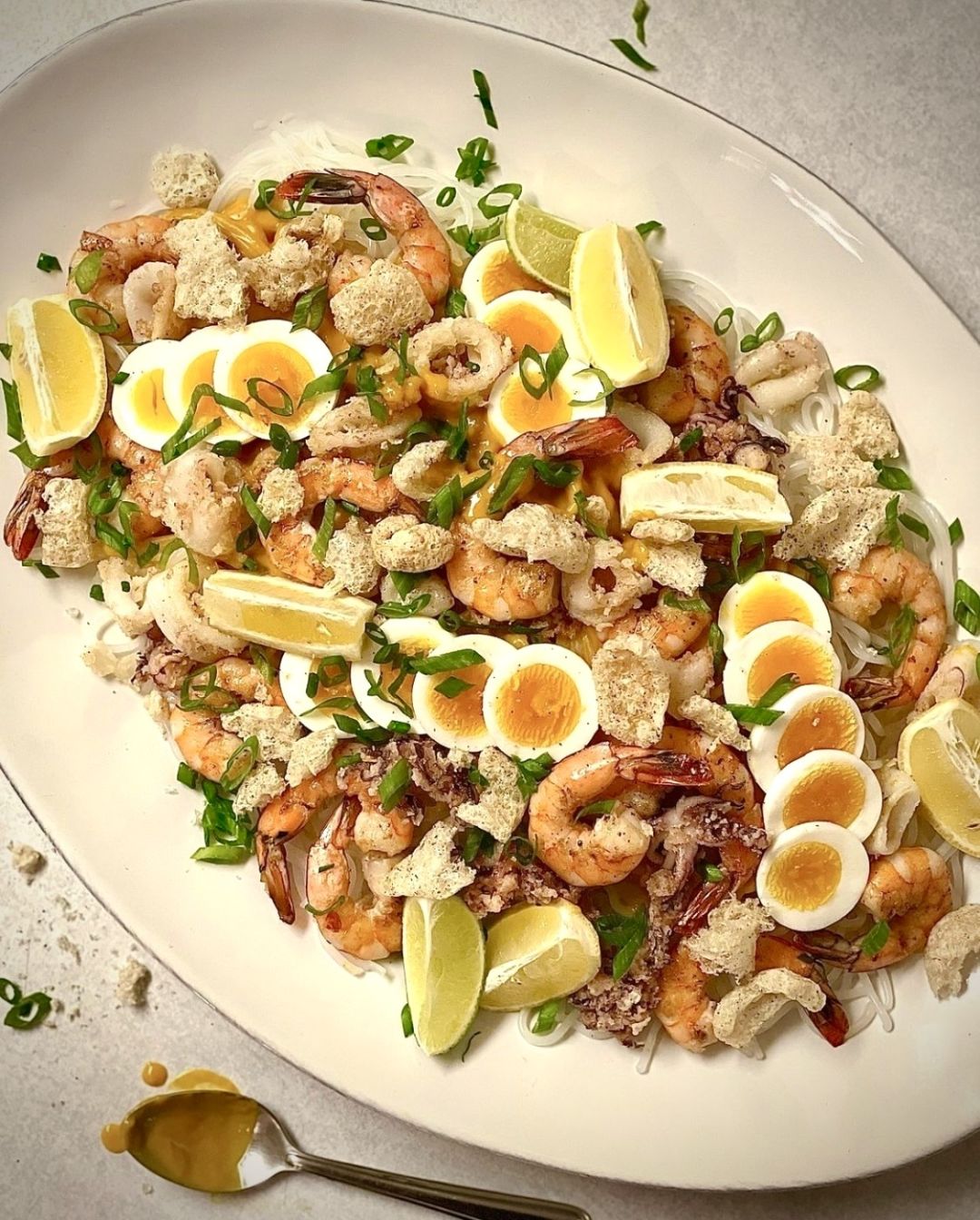
Pancit palabok
Image: Courtesy Tikim
Tikim describes its style of cooking as "ate's cooking"—the term "ate" referring to an older sister or friend. This isn't your tita's cooking (sound familiar, Baon Kainan?), nor is it your lola's (grandma's) cooking. It also isn't trendy Gen-Z cooking, De Vega says. "This is how I make it for myself," she explains. "It's really to our modern palates. We all have Filipino roots, but our Filipino roots are influenced by our current experience."
In the future, the collective hopes to host events centered around Filipino holidays like the Noche Buena, celebrated on Christmas Eve. The aim is not just to celebrate food, but Filipino culture a a whole. And with Tikim, De Vega hopes to establish Filipino food as a go-to cuisine in Portland.
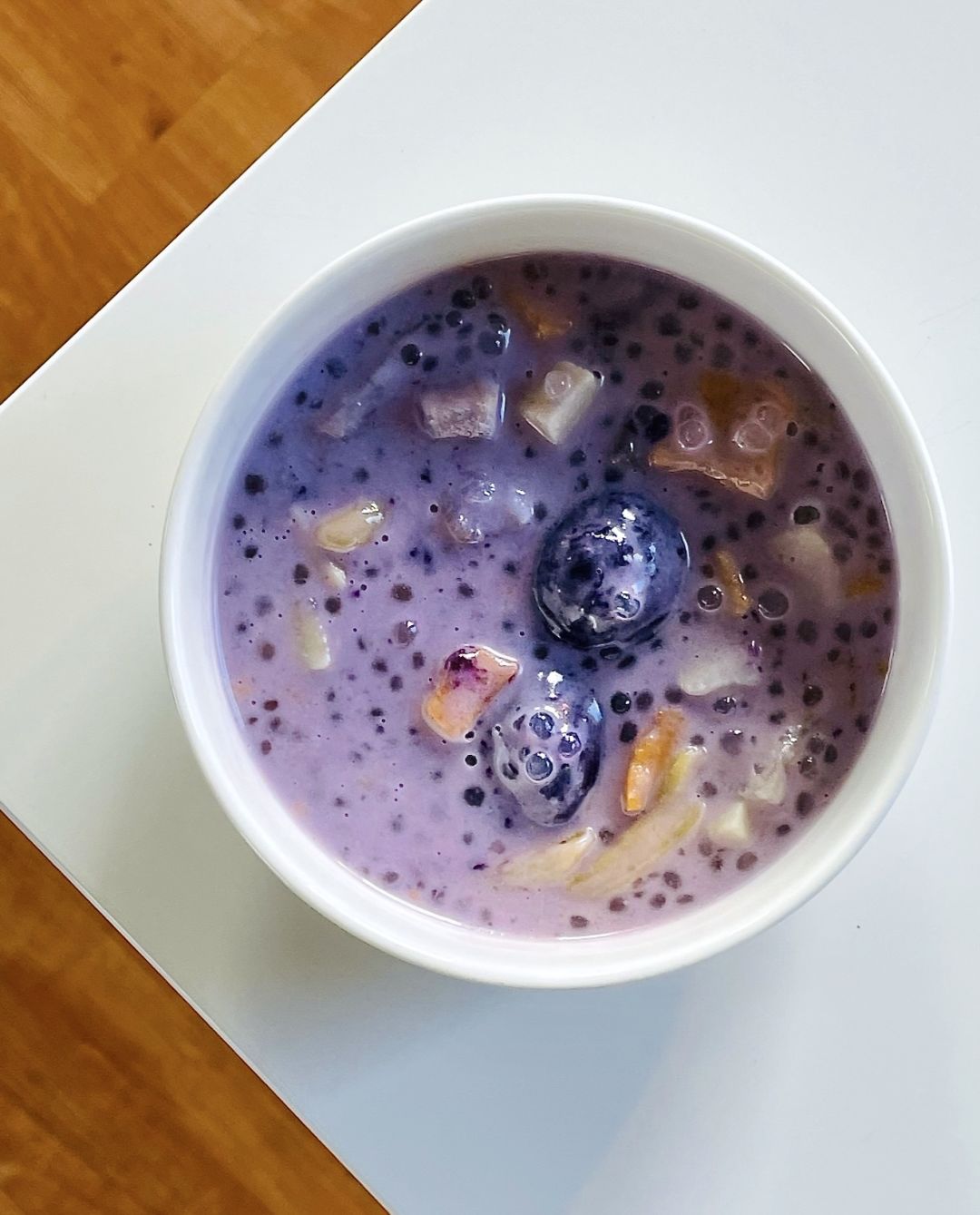
Ginataang bilo bilo
Image: Courtesy Tikim
“Filipino food has been an up-and-coming cuisine, it feels like, for a decade,” says De Vega. “And I’m like, when is it finally gonna arrive? When is Filipino food going to be just listed in the same way as Chinese food, Japanese food, Thai food, Vietnamese food? ...I don’t think we’re necessarily going to be doing that overnight, or Tikim is going to be doing that [alone.] But we’re going to help. We’re gonna try to get it there.”
